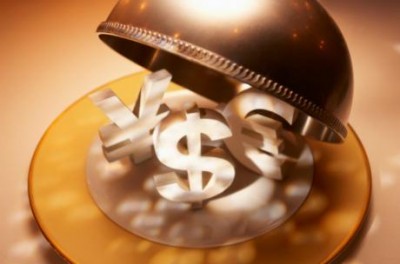Central Banks Have Become a Corrupting Force

Are we witnessing the corruption of central banks? Are we observing the money-creating powers of central banks being used to drive up prices in the stock market for the benefit of the mega-rich?
These questions came to mind when we learned that the central bank of Switzerland, the Swiss National Bank, purchased 3,300,000 shares of Apple stock in the first quarter of this year, adding 500,000 shares in the second quarter. Smart money would have been selling, not buying.
It turns out that the Swiss central bank, in addition to its Apple stock, holds very large equity positions, ranging from $250,000,000 to $637,000,000, in numerous US corporations — Exxon Mobil, Microsoft, Google, Johnson & Johnson, General Electric, Procter & Gamble, Verizon, AT&T, Pfizer, Chevron, Merck, Facebook, Pepsico, Coca Cola, Disney, Valeant, IBM, Gilead, Amazon.
Among this list of the Swiss central bank’s holdings are stocks which are responsible for more than 100% of the year-to-date rise in the S&P 500 prior to the latest sell-off.
What is going on here?
The purpose of central banks was to serve as a “lender of last resort” to commercial banks faced with a run on the bank by depositors demanding cash withdrawals of their deposits.
Banks would call in loans in an effort to raise cash to pay off depositors. Businesses would fail, and the banks would fail from their inability to pay depositors their money on demand.
As time passed, this rationale for a central bank was made redundant by government deposit insurance for bank depositors, and central banks found additional functions for their existence. The Federal Reserve, for example, under the Humphrey-Hawkins Act, is responsible for maintaining full employment and low inflation. By the time this legislation was passed, the worsening “Phillips Curve tradeoffs” between inflation and employment had made the goals inconsistent. The result was the introduction by the Reagan administration of the supply-side economic policy that cured the simultaneously rising inflation and unemployment.
Neither the Federal Reserve’s charter nor the Humphrey-Hawkins Act says that the Federal Reserve is supposed to stabilize the stock market by purchasing stocks. The Federal Reserve is supposed to buy and sell bonds in open market operations in order to encourage employment with lower interest rates or to restrict inflation with higher interest rates.
If central banks purchase stocks in order to support equity prices, what is the point of having a stock market? The central bank’s ability to create money to support stock prices negates the price discovery function of the stock market.
The problem with central banks is that humans are fallible, including the chairman of the Federal Reserve Board and all the board members and staff. Nobel prize-winner Milton Friedman and Anna Schwartz established that the Great Depression was the consequence of the failure of the Federal Reserve to expand monetary policy sufficiently to offset the restriction of the money supply due to bank failure. When a bank failed in the pre-deposit insurance era, the money supply would shrink by the amount of the bank’s deposits. During the Great Depression, thousands of banks failed, wiping out the purchasing power of millions of Americans and the credit creating power of thousands of banks.
The Fed is prohibited from buying equities by the Federal Reserve Act. But an amendment in 2010 – Section 13(3) – was enacted to permit the Fed to buy AIG’s insolvent Maiden Lane assets. This amendment also created a loophole which enables the Fed to lend money to entities that can use the funds to buy stocks. Thus, the Swiss central bank could be operating as an agent of the Federal Reserve.
If central banks cannot properly conduct monetary policy, how can they conduct an equity policy? Some astute observers believe that the Swiss National Bank is acting as an agent for the Federal Reserve and purchases large blocs of US equities at critical times to arrest stock market declines that would puncture the propagandized belief that all is fine here in the US economy.
We know that the US government has a “plunge protection team” consisting of the US Treasury and Federal Reserve. The purpose of this team is to prevent unwanted stock market crashes.
Is the stock market decline of August 20-21 welcome or unwelcome?
At this point we do not know. In order to keep the dollar up, the basis of US power, the Federal Reserve has promised to raise interest rates, but always in the future. The latest future is next month. The belief that a hike in interest rates is in the cards keeps the US dollar from losing exchange value in relation to other currencies, thus preventing a flight from the dollar that would reduce the Uni-power to Third World status.
The Federal Reserve can say that the stock market decline indicates that the recovery is in doubt and requires more stimulus. The prospect of more liquidity could drive the stock market back up. As asset bubbles are in the way of the Fed’s policy, a decline in stock prices removes the equity market bubble and enables the Fed to print more money and start the process up again.
On the other hand, the stock market decline last Thursday and Fridaycould indicate that the players in the market have comprehended that the stock market is an artificially inflated bubble that has no real basis. Once the psychology is destroyed, flight sets in.
If flight turns out to be the case, it will be interesting to see if central bank liquidity and purchases of stocks can stop the rout.

